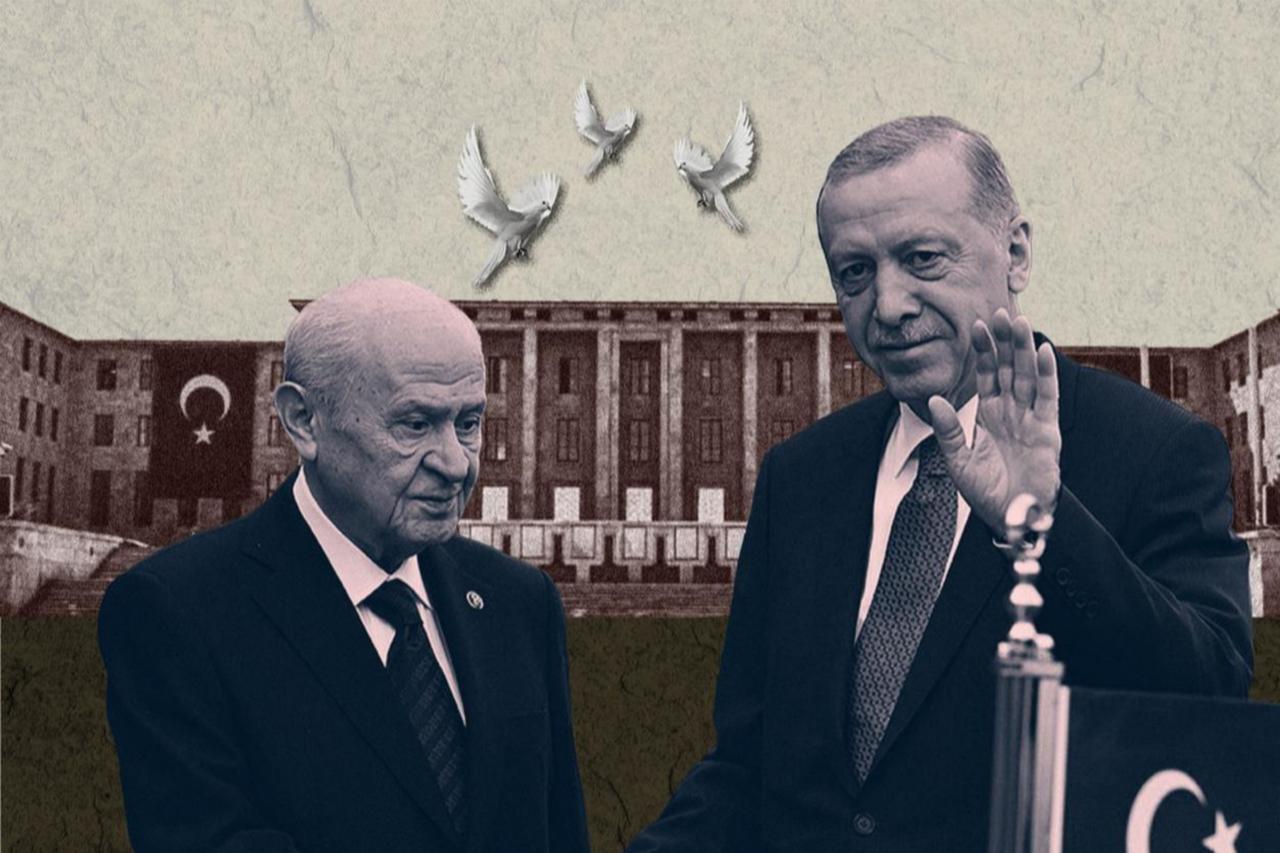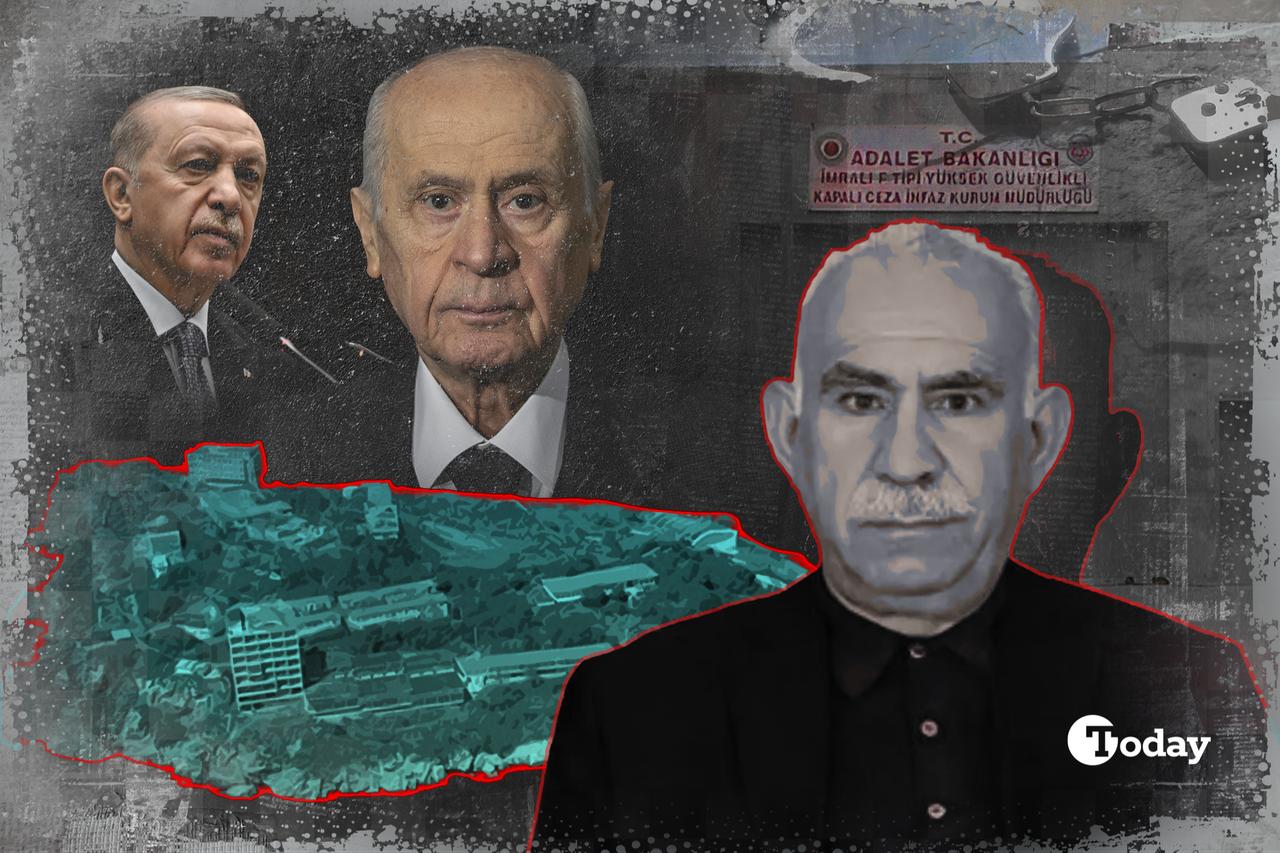
This article was originally written for Türkiye Today’s weekly newsletter, Saturday's Wrap-up, in its November 22 issue. Please make sure you are subscribed to the newsletter by clicking here.
Ankara has been buzzing with an intriguing question: Is Nationalist Movement Party (MHP) leader Devlet Bahceli pushing President Recep Tayyip Erdogan toward a faster peace process than he is politically comfortable with?
Bahceli is widely seen as the political architect who opened the door for the new initiative. A terror-free Türkiye project that is supposed to eliminate the terrorism burden weighing on the country over the last decades.
Bahceli’s public demand for a “speedy” peace process, and his striking suggestion that he might personally visit PKK ringleader Abdullah Ocalan on Imrali Island, were the loudest signals yet that the nationalist leader wants momentum.
His remarks about a possible personal visit to Imrali Island were seen as a silent warning if the parliamentary commission acted slowly. His message, delivered with unmistakable urgency, has set the pace for everyone else, including Erdogan, who has traditionally avoided quick leaps on this matter.
The overall public support for the peace process remains low despite the joy it brought to Türkiye’s southeastern cities. Although it is now a state policy, the president's conservative base remains distanced from the peace process, which began as a top-down initiative rather than a loud and popular demand.

The Justice and Development Party (AK Party)’s reaction this week underscored the emerging tension. A senior AK Party official said that the government views a parliamentary visit to Ocalan “positively,” especially as Türkiye heads toward a crucial vote. It was cautiously worded but meaningful endorsement—one that signaled the ruling party’s approval of steps that, until recently, were politically unthinkable. Yet the tone from the AK Party was measured. One day after the AK Party official’s remarks, a parliamentary committee, which the AK Party dominates with 21 members, decided to visit Ocalan.
Bahceli’s statements, especially the one hinting at his own engagement with Ocalan, effectively raise the cost of delay, leaving Erdogan with less room to maneuver. The fact that Bahceli also publicly requested the broadcast of Imamoglu’s court case may equally annoy Erdogan.
All this is unfolding against a historic backdrop. Ocalan’s most recent message calling on the PKK to disarm and embrace the “centuries-old Turkish-Kurdish brotherhood” was delivered after the People’s Equality and Democracy Party (DEM Party) delegation’s third visit to the island. It marked the most extensive call for silencing arms since the 2013–2015 peace process collapsed.
The road to this moment began in October 2024, when Bahceli unexpectedly revived the national debate by urging a fresh political opening. His call triggered a cascade of meetings by DEM Party delegations in Ankara and northern Iraq, including high-level engagements with the Barzani family. Those conversations paved the way for Ocalan’s message and revived discussions that many believed were politically impossible.
Türkiye’s decades-long struggle against the PKK has deeply shaped its society, politics and military. The last 10 years, which are defined by sweeping military reforms and the rise of a sophisticated domestic defense industry, pushed the conflict beyond Türkiye’s borders into Syria and Iraq.
These developments created a new strategic environment in which political compromise began to look more feasible than in past eras, even for skeptics.
A breakthrough is underway, one that may shape Türkiye for decades as the republic’s democracy matures and its national identity evolves. However, if Bahceli continues to escalate pressure, Erdogan will either embrace the momentum or recalibrate the process in his own time, as he always has.